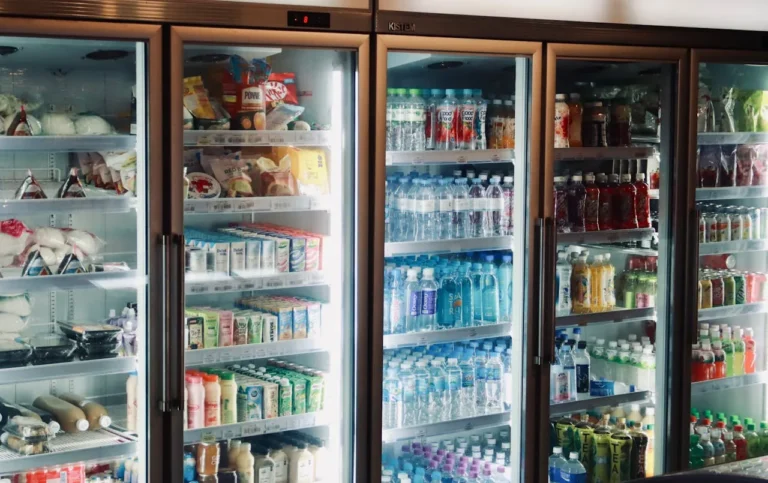
HACCP Training Essential for Food Safety Success.As a food assiduity professional, understanding the critical significance of food safety. enforcing a Hazard Analysis Critical Control Points( HACCP) plan is abecedarian to achieving safety and compliance. HACCP provides the frame for covering an operation from raw accoutrements to finished product to reduce the threat of impurity or error. Regulatory agencies and adjudicators consider HACCP the gold standard for preventative control systems.
To develop an effective HACCP plan, there must be platoon members with proper training and instrument. Online HACCP training courses offer a accessible way for staff to gain the knowledge and chops necessary to design, apply, and maintain a HACCP system acclimatized to each installation. HACCP training can insure harmonious food safety practices and confidence in the integrity of the products.
What Is HACCP and Why Is It Important?
Hazard Analysis Critical Control Points( HACCP) is a methodical approach to food safety that identifies implicit hazards and tools controls to reduce threat. HACCP is internationally honored as an effective means of controlling foodborne health hazards.
The HACCP system examines constituents, recycling procedures, packaging, storehouse, and distribution to identify points where hazards could be introduced or controlled. Critical control points( CCPs) are linked, and critical limits are established to insure control of the linked hazards. Monitoring procedures are developed to insure compliance with critical limits, corrective conduct are determined in case of resistance, verification and confirmation conditioning confirm the effectiveness of the HACCP plan, and accurate record- keeping documents the HACCP system.
enforcing an effective HACCP system provides numerous benefits, including bettered food safety, compliance with nonsupervisory conditions, defense in liability conduct, bettered effectiveness, and implicit cost savings. Food processors around the world have incorporated HACCP principles into their food safety operation systems.
Regulatory agencies like the USDA and FDA consider HACCP the most effective approach available to address food safety enterprises. HACCP compliance is obligatory for diligence like seafood, meat, and flesh, and numerous other parts are incorporating HACCP freely. Earning HACCP instrument demonstrates a commitment to food safety that guests, controllers, and adjudicators fete and respect.
In summary, HACCP is a scientific and methodical approach to food safety that focuses on relating and precluding hazards. A duly designed and enforced HACCP system is the foundation of a strong food safety program in any food product terrain. HACCP instrument is decreasingly getting an anticipation and a demand, making HACCP training essential for success in the food assiduity.
Assembling the HACCP Team- Who is demanded
To develop an effective HACCP plan, first assemble a knowledgeable platoon. As the foundation of a food safety system, the HACCP platoon will be assigned with relating and controlling hazards. At a minimum, the platoon should include
• A HACCP fellow who has completed accredited HACCP training( https//ehaccp.org). This person will lead the platoon and oversee plan development and perpetration.
• Representatives from crucial areas like copping
, product, quality assurance, and conservation. These individualities understand specific processes and outfit in their departments. Their input is critical for hazard identification and control.
• A microbiologist or food technologist. This expert can advise on implicit natural, chemical, and physical hazards associated with the products and processes.
• conservation and sanitation staff. The people responsible for outfit keep and hygiene have precious perceptivity into hazards that could be introduced or spread.
• A record- keeper. This platoon member will validate the HACCP plan, variations, attestations, verifications, and diversions to insure compliance and nonstop enhancement.
External coffers
Tap external coffers to strengthen the platoon
• Trade association experts. Assiduity groups can recommend stylish practices and help determine applicable control measures.
• Advisers. Hiring a adviser is an effective way to pierce technical knowledge and get guidance developing and enforcing the HACCP plan.
• Suppliers. Include crucial suppliers on the platoon or ask them to review and give input on the plan. They may spot implicit issues that affect the safety of their constituents or accoutrements .
• Regulatory officers. Original health department inspectors or civil controllers like the FDA and USDA are willing to consult on HACCP plans. Take advantage of their experience and moxie.
With the right members and moxie in place, the HACCP platoon will be poised to draft a comprehensive plan acclimatized to the products and operations. Investing in the platoon will help insure compliance, nonstop enhancement, and a successful HACCP program.




